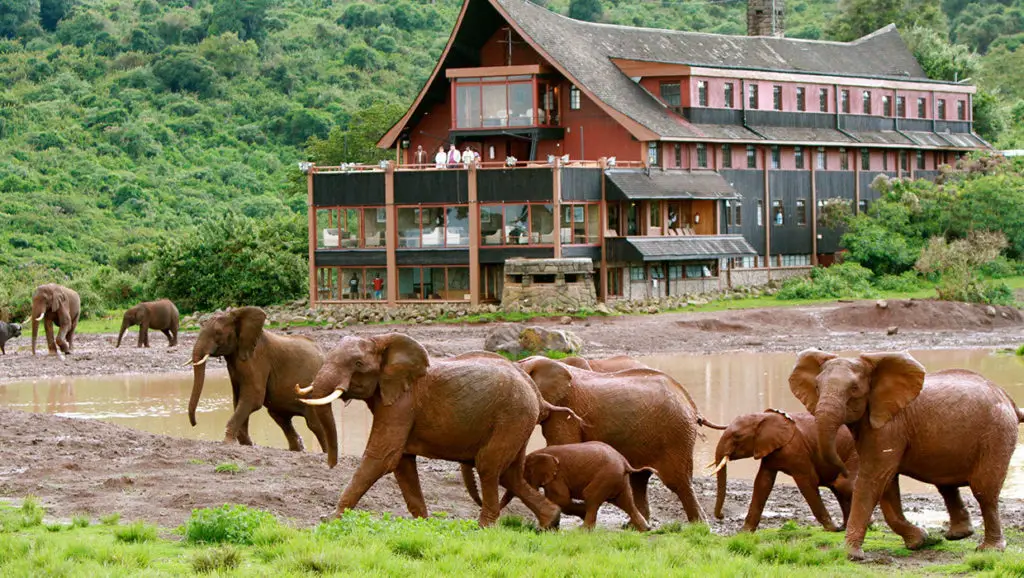Embu town, located in central Kenya, experiences a tropical wet and dry climate, also known as a savanna climate (Köppen classification: Aw). The town’s climate is characterized by moderate temperatures throughout the year, with an average annual temperature of approximately 19.2°C (66.6°F).
Embu’s elevation of about 4,400 feet (1,350 meters) on the southeastern slopes of Mount Kenya significantly influences its climate, making it cooler than lower-lying areas in Kenya.
What is the average temperature in Embu?
The average annual temperature in Embu is 19.2°C (66.6°F). However, temperatures vary throughout the year:
- Coldest month (July): 17.4°C (63.2°F)
- Warmest month (March): 21.2°C (70.1°F)
Monthly average temperatures:
| Month | Average Temperature (°C) | Average Temperature (°F) |
|---|---|---|
| January | 19.7 | 67.5 |
| February | 20.8 | 69.4 |
| March | 21.2 | 70.1 |
| April | 20.4 | 68.7 |
| May | 19.4 | 66.9 |
| June | 18.1 | 64.6 |
| July | 17.4 | 63.2 |
| August | 17.6 | 63.7 |
| September | 18.9 | 66.0 |
| October | 20.1 | 68.2 |
| November | 19.7 | 67.5 |
| December | 19.3 | 66.7 |
How much rainfall does Embu receive annually?
Embu receives substantial rainfall, with an average annual precipitation of approximately 1449 mm (57 inches). The rainfall is distributed throughout the year, with two distinct rainy seasons:
- Long rains: March to May
- Short rains: October to December
What are the driest and wettest months in Embu?
The driest and wettest months in Embu are:
- Driest month: July
- Wettest month: April
How does elevation affect Embu’s climate?
Embu’s elevation of about 4,400 feet (1,350 meters) significantly impacts its climate:
- Cooler temperatures compared to lower-lying areas
- Increased rainfall due to orographic effects
- More moderate climate compared to the Kenyan coast or inland lowlands
- Reduced risk of extreme heat events
What is the humidity like in Embu?
Embu experiences moderate to high humidity levels throughout the year. The relative humidity often ranges between 60% and 80%, with higher levels during the rainy seasons and early mornings.
How does Embu’s climate compare to other Kenyan towns?
Comparison of Embu’s climate with other Kenyan towns:
| Town | Average Annual Temperature (°C) | Annual Rainfall (mm) | Climate Classification |
|---|---|---|---|
| Embu | 19.2 | 1449 | Tropical wet and dry (Aw) |
| Nairobi | 19.0 | 869 | Subtropical highland (Cwb) |
| Mombasa | 26.3 | 1196 | Tropical monsoon (Am) |
| Kisumu | 22.9 | 1352 | Tropical savanna (Aw) |
What are the seasons like in Embu?
Embu experiences four main seasons:
- Long rainy season (March to May)
- Cool dry season (June to August)
- Short rainy season (October to December)
- Hot dry season (January to February)
How does climate change affect Embu?
Climate change impacts on Embu include:
- Increased variability in rainfall patterns
- Higher frequency of extreme weather events
- Potential shifts in growing seasons
- Changes in water availability
- Increased risk of soil erosion during heavy rains
What is the best time to visit Embu?
The best time to visit Embu depends on personal preferences, but generally:
- Dry seasons (June to September and January to February) are ideal for outdoor activities
- Rainy seasons (March to May and October to December) offer lush landscapes but may limit some activities
How does Embu’s climate affect agriculture?
Embu’s climate significantly influences its agriculture:
- Supports a wide variety of crops due to moderate temperatures
- Two rainy seasons allow for multiple growing cycles
- Coffee and tea thrive in the cool, moist conditions
- Risk of crop failure during drought years
- Soil erosion can be a concern during heavy rains
What is the solar radiation like in Embu?
Embu receives substantial solar radiation throughout the year:
- Average daily solar radiation: 5.5 to 6.5 kWh/m²
- Longer daylight hours compared to higher latitudes
- Potential for solar energy development
How does wind affect Embu’s climate?
Wind patterns in Embu:
- Generally mild to moderate wind speeds
- Influenced by the Intertropical Convergence Zone (ITCZ)
- Local topography affects wind direction and speed
- Stronger winds during dry seasons
What is the air quality like in Embu?
Air quality in Embu is generally good due to:
- Limited industrial activity
- Proximity to natural areas
- Elevation and wind patterns that disperse pollutants
- Lower population density compared to larger urban centers
However, localized air quality issues may arise from:
- Vehicle emissions in town center
- Dust during dry seasons
- Agricultural burning practices
How does Embu’s climate impact water resources?
Embu’s climate plays a crucial role in water resource management:
- Abundant rainfall contributes to local rivers and streams
- Seasonal variations affect water availability
- Groundwater recharge occurs primarily during rainy seasons
- Climate change may lead to increased water stress in the future
What extreme weather events occur in Embu?
While generally moderate, Embu can experience extreme weather events:
- Flash floods during heavy rains
- Occasional droughts during prolonged dry spells
- Strong winds, especially during seasonal transitions
- Hailstorms, though rare
How does the climate affect daily life in Embu?
Embu’s climate influences daily life in several ways:
- Moderate temperatures allow for outdoor activities year-round
- Rainy seasons may disrupt transportation and outdoor events
- Agricultural cycles dictate economic activities for many residents
- Clothing choices are influenced by temperature and rainfall patterns
What measures are taken to adapt to climate variability in Embu?
Adaptation measures in Embu include:
- Water conservation and management strategies
- Crop diversification and improved agricultural techniques
- Soil conservation practices to prevent erosion
- Investment in climate-resilient infrastructure
- Public awareness campaigns on climate change impacts
How does Embu’s climate compare to global climate classifications?
Embu’s climate in the global context:
- Classified as Tropical wet and dry (Aw) in the Köppen system
- Shares similarities with other highland areas near the equator
- More moderate than typical tropical climates due to elevation
- Distinct from temperate and arid climates found in other parts of the world
What role does Mount Kenya play in Embu’s climate?
Mount Kenya significantly influences Embu’s climate:
- Creates a rain shadow effect, affecting precipitation patterns
- Moderates temperatures due to elevation and proximity
- Influences local wind patterns and cloud formation
- Contributes to the region’s water resources through glacial melt and forest catchments
How do El Niño and La Niña affect Embu’s climate?
El Niño and La Niña events can impact Embu’s climate:
- El Niño often leads to increased rainfall and potential flooding
- La Niña may result in drier conditions and drought risk
- Both events can disrupt normal agricultural cycles
- Effects are typically less pronounced than in coastal regions
In conclusion, Embu town’s climate is characterized by moderate temperatures, substantial rainfall, and distinct seasonal patterns. Its location on the slopes of Mount Kenya provides a unique microclimate that supports diverse agriculture and comfortable living conditions.
While facing challenges from climate variability and change, Embu’s climate remains a significant asset, contributing to its role as an important agricultural and economic center in central Kenya. Understanding and adapting to this climate is crucial for the town’s sustainable development and the well-being of its residents.



